Harry James, the legendary trumpet player, was a true icon in the thrilling world of jazz. With his remarkable band, he discovered the hidden singing talents of a young Frank Sinatra. Harry James played a huge role in defining the sound of the big band era. His trumpet skills were out of this world, making him a true master. But behind the music, Harry James had a fascinating personal life filled with ups and downs. Join us as we unfold the captivating story of Harry James, revealing the secrets, twists, and anecdotes that made him a musical legend.
Facts About Harry James
Ever heard a trumpet wail that could melt your heart and make your feet tap at the same time? That’s the magic of Harry James! Born in Albany, Georgia, in 1916, James’ musical journey began at the tender age of four when he first picked up the drums. By eight, he’d mastered the trumpet, leading a circus band by the time he was twelve. Talk about a prodigy!
James wasn’t just another trumpet player – he was a force of nature in the music world. His journey took a significant turn in 1937 when he joined the ranks of none other than the “King of Swing” himself, Benny Goodman. Imagine young Harry, trumpet in hand, blowing everyone away with his incredible solos as part of Goodman’s legendary band.
But Harry was destined for even bigger things. Around 1938, at the age of 22, he took a leap of faith and formed his own group, “Harry James and His Music Makers.” And let me tell you, they weren’t kidding around with a name like that! The band shot to fame during the golden age of big bands, becoming one of the hottest acts around.
What made Harry so special? It was more than just hitting the right notes. Some say he had this way of playing, a style all his own, that mixed sweet melodies with pure technical brilliance. He could make that trumpet sing! Young musicians everywhere were trying to capture his sound, and you can still hear echoes of Harry’s influence in music today.
And speaking of influence, let’s talk hits! “You Made Me Love You” and “I’ve Heard That Song Before” – those were just a couple of the tunes that had folks rushing to dance floors whenever Harry’s band played. Those songs weren’t just popular; they became part of the soundtrack of a generation.
But Harry wasn’t content sticking to just one stage. He even graced the silver screen, appearing in a bunch of musical films. Talk about a triple threat!
The thing about Harry James is that he wasn’t afraid to push the boundaries. His arrangements for the big band weren’t just notes on a page; they were like sonic adventures! He stretched the limits of what jazz could be, and that’s a legacy that continues to inspire.
To sum it up, Harry James wasn’t just a trumpet player; he was an innovator, a showman, and a true original. No wonder he’s considered one of the most important and influential figures from the big band era. His music? Well, it’s a timeless reminder that sometimes, all it takes to lift your spirits is a little bit of trumpet magic.
What are some interesting facts about Harry James?
Picking up where we left off, let’s dive a bit deeper into Harry James’ fascinating life. You see, James’s band wasn’t a constant presence throughout his whole career. He actually decided to disband the group in 1947! It might sound surprising given his success, but it suggests that maybe he was looking for a change of pace or exploring new musical avenues. However, the call of the trumpet must have been too strong to resist because he brought the band back together in 1949. This back and forth in his career is pretty interesting, don’t you think? It makes you wonder about what went through his mind during that period.
Anyway, two recordings from James’s later years, made in 1979 and 1983, give us a glimpse into his musical journey during those later years. Interestingly, while his band was a huge part of his identity, James also dabbled in acting! He popped up in several films, often with his band playing in the background. Can you imagine the energy of a Harry James performance on the big screen?
What’s really cool is that even though James is best known for his trumpet skills and leading a big band, he was actually a multi-talented musician. Remember how he started playing drums at just four years old? That early exposure to music probably had a huge influence on his musical journey. It’s fascinating to think about how those early experiences shaped the musician he became.
While James’s music enjoyed a great deal of popularity, some critics weren’t as impressed. They felt his style was a bit too sentimental and not improvisational enough for their liking. It just goes to show that even successful artists face criticism, and it often comes down to differing opinions about musical styles.
Despite the varied opinions, one thing is certain: Harry James left an undeniable mark on the world of music. From his early days as a drummer to leading one of the most popular big bands, his career was full of twists, turns, and a whole lot of swing!
Who did Harry James discover?
We’ve talked about Harry James, the jazz superstar with a trumpet that could melt your heart, but did you know he was also a bit of a star-maker? This bandleader had a knack for spotting talent, and boy, did he launch some careers!
Let’s talk about Frank Sinatra. Yeah, that Frank Sinatra. Before he was crooning “My Way,” Sinatra was cutting his teeth with Harry James’ band. James gave him his first big break, letting him loose on hits like “All or Nothing at All.” Talk about a launchpad!
And it wasn’t just Sinatra. Remember Helen Forrest? Her dreamy voice on “I Had the Craziest Dream”? Yep, she was another James protégé. He saw something special in her, and boy, did she blossom under his guidance.
Then there’s Kitty Kallen, the voice behind the unforgettable “Besame Mucho.” Her time with James’ band put her on the map. Same goes for Dick Haymes, whose renditions of classics like “It’s the Same Old Dream” became instant favorites thanks to the exposure he got with James.
But it wasn’t just about singers. James also had a gift for spotting instrumental brilliance. Take Juan Tizol, for instance. This trombonist and composer joined forces with James, and together they cooked up the iconic jazz standard “Caravan.” Talk about a legacy!
James wasn’t just a bandleader; he was a mentor, a champion of talent. He saw potential where others didn’t and wasn’t afraid to take a chance on an unknown voice or a hidden musical gem. He shaped the jazz scene in ways we still feel today. So, the next time you hear a Sinatra classic or get swept away by “Caravan,” remember the man behind the curtain, the star-maker himself, Harry James.
What Instrument Did Harry James Play?
We’ve covered a lot about Harry James, but we haven’t explicitly mentioned the instrument that made him a household name. So, what instrument propelled this musical genius to stardom? You guessed it, the trumpet! 🎺
From a young age, it was clear that Harry James was destined for greatness with a trumpet in his hand. Leading a circus band at the age of 12 is no small feat, and it wasn’t long before his talent caught the attention of Benny Goodman, the ‘King of Swing’. Goodman, recognizing James’ raw talent and potential, invited him to join his band in 1937. This was a pivotal moment for James, giving him the opportunity to hone his skills alongside some of the best musicians of the time.
However, James wasn’t content with simply being a member of a band, even one as prestigious as Goodman’s. He had a unique vision, a sound he yearned to create. This led him to form his own band, “Harry James and His Music Makers,” in 1938.
What set Harry James apart from other trumpet players of his era? It was more than just his technical mastery of the instrument, though his speed and precision were remarkable. James poured his heart and soul into every note, creating a sound that was both powerful and deeply emotional. His trumpet wasn’t just an instrument; it was an extension of himself.
This unique blend of technical skill and raw emotion quickly propelled James and his band to success. Hits like “You Made Me Love You” and “I’ve Heard That Song Before” became instant classics, solidifying James’ place in the Big Band Hall of Fame.
And let’s not forget James’ knack for discovering and mentoring new talent. From Frank Sinatra to Helen Forrest, James provided a platform for some of the most iconic voices in music history.
Harry James’ legacy extends far beyond his trumpet playing. He was a visionary, a mentor, and a true icon of the Big Band era. His music continues to resonate with audiences today, a testament to the enduring power of his unique sound.
What happened to Harry James?
Harry James, the trumpet virtuoso and bandleader who defined an era of jazz music, didn’t simply fade into obscurity. Sadly, his later years were marked by a series of health challenges that ultimately led to his passing.
In the years leading up to 1983, James had been grappling with a number of serious health issues. He had suffered a stroke, a debilitating event that can significantly impact mobility and overall well-being. Adding to his woes, he was also diagnosed with heart problems, a common but serious ailment, especially later in life. To compound matters, James was diagnosed with a brain tumor in 1982 and underwent surgery to address it. While the surgery aimed to offer some relief, the tumor, combined with his other health concerns, inevitably took a toll.
However, despite his failing health, James’ love for music and his dedication to his craft never wavered. He continued to perform until his body simply couldn’t keep up. Imagine the raw emotion and dedication on display during his final performance at the Concord Jazz Festival in California on June 25, 1983. Despite his failing health, he poured his heart and soul into every note. Sadly, a scheduled performance at the Newport Jazz Festival in New York just a few days later had to be canceled due to his deteriorating condition.
On July 5, 1983, Harry James succumbed to his illnesses and passed away at his home in Las Vegas, Nevada. He was 67 years old. The world mourned the loss of a musical legend, a man who had irrevocably changed the landscape of jazz music. However, his legacy lives on through his music and the countless artists he inspired. His recordings continue to captivate audiences today, a testament to his enduring talent and the timelessness of his music.
What Was Special About Harry?
Now that we’ve delved into the details of Harry James’ life and career, let’s explore what made him genuinely stand out in a crowded field of talented musicians. What was it about his music and persona that captivated audiences and solidified his status as a true icon?
Well, firstly, Harry James was a trumpet player, but not just any trumpet player. This guy possessed a distinct sound, a unique quality that made his music instantly recognizable. Think about it: you can easily distinguish between Elvis Presley and Frank Sinatra, right? Their voices were unique. Similarly, Harry had that same level of distinction with his trumpet.
His talent extended far beyond simply having a “nice tone,” though his was undeniably beautiful. Harry’s trumpet playing was characterized by a technical mastery that left fellow musicians in awe. He effortlessly navigated complex musical passages with a speed and precision that seemed almost superhuman. It’s no surprise that his playing style influenced an entire generation of aspiring trumpeters.
But Harry’s brilliance wasn’t confined to technical prowess alone. He possessed an innate ability to connect with an audience, a quality that’s essential for any successful musician. As the frontman of one of the most popular big bands of his era, he commanded the stage with an irresistible charisma, drawing crowds to packed dance halls night after night. His band played a significant role in shaping the soundscape of the Big Band era with their infectious rhythms and catchy melodies.
And let’s not forget Harry’s uncanny ability to spot and nurture raw talent. He provided a springboard for some of the biggest names in music, most notably, Frank Sinatra. Before he was “Ol’ Blue Eyes,” Sinatra honed his craft under James’ wing, gaining valuable experience and exposure as a vocalist in his band. And Sinatra wasn’t the only beneficiary of James’ mentorship; he helped launch the careers of other talented vocalists, including the unforgettable Helen Forrest.
One of the most remarkable aspects of Harry James’ legacy is the enduring popularity of his music. Even today, decades after his passing, his innovative playing style and groundbreaking big band arrangements continue to resonate with listeners. His music possesses a timeless quality that transcends generations. Harry James wasn’t just a fleeting star; he left an indelible mark on the world of music, and his influence continues to inspire and captivate audiences today.
How Old is Harry in 1?
This question might seem a bit perplexing at first, but it’s actually quite straightforward! We know that Harry James formed his own big band in 1939, marking a significant turning point in his musical journey. This bold move at such a young age propelled his career and solidified his place as a prominent figure in jazz history. So, how old was this ambitious musician when he embarked on this new chapter in his life? He was just a youthful 23 years old! It’s incredible to think that someone so young could possess the talent, drive, and ambition to achieve such success.
If you’re interested in discovering more about influential figures in history, you might find these articles intriguing:
- Discover intriguing facts about Cheng Lei that will leave you astonished.
- Explore the astounding facts about Marc Clotet that you never knew existed.
- Delve into the surprising facts about Thomas Hobbes that will challenge your preconceptions.
- Unlock Filipino Culture: A Deep Dive into Traditions and Practices - April 23, 2025
- Unlock Spanish Culture: Insights & Opportunities Now - April 23, 2025
- White Spirit Uses & Substitutes: A Deep Dive for Pros & DIYers - April 23, 2025
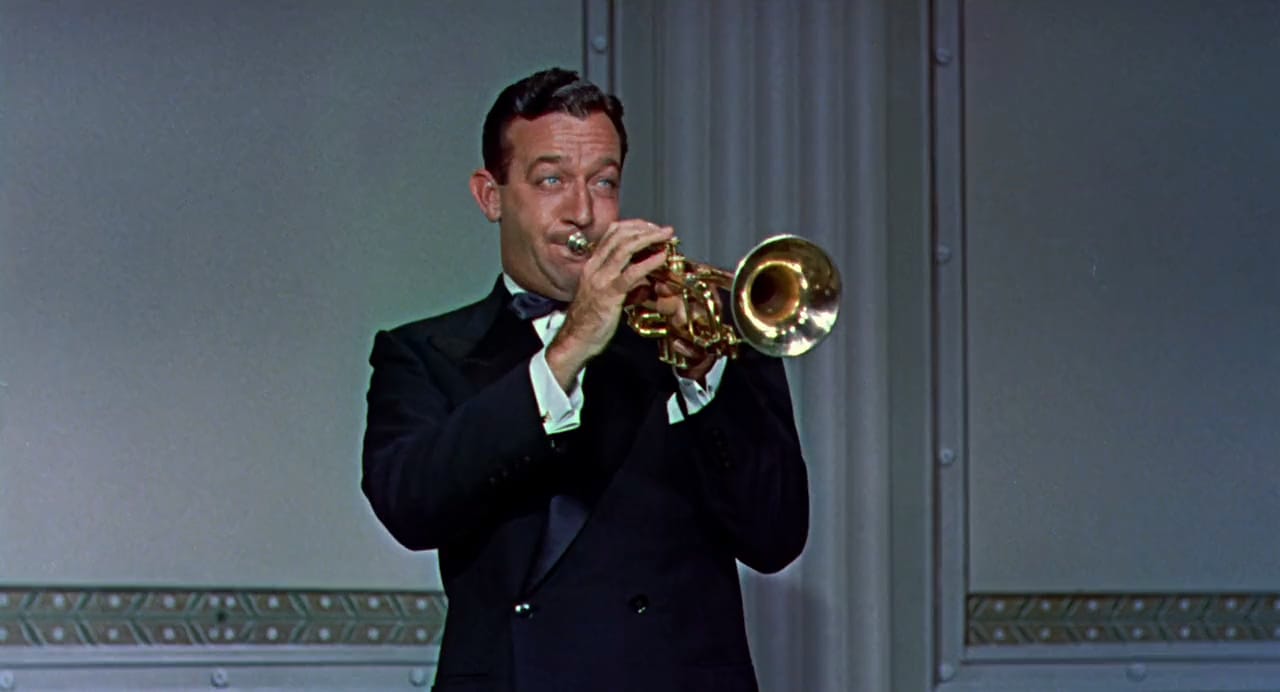


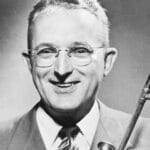
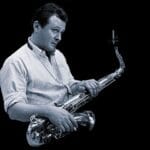
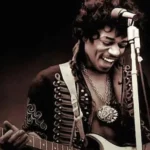
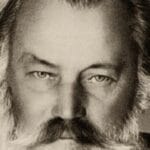










2 thoughts on “Unveiling the Legend: Fascinating Facts About Harry James”
Comments are closed.